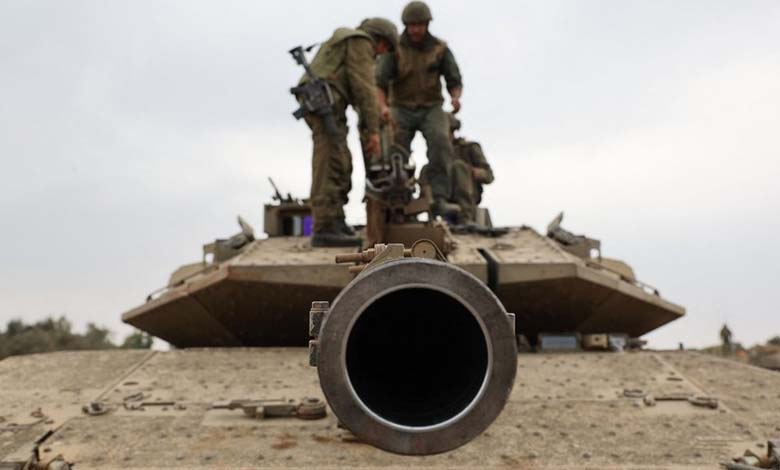Israel Prepares to Implement Gaza Occupation Plan and Evacuate Civilians

Israel’s approval of a comprehensive plan to seize control of the Gaza Strip comes at a moment of acute diplomatic friction, particularly with France and Australia, as both countries, along with several others, prepare to recognize the State of Palestine.
-
Latest News from Gaza: Intensified Israeli Bombardment and Tanks Advancing to the City’s Entrance
-
The largest since the start of the Gaza war… The People’s Strike paralyzes Israel
Israeli Defense Minister Yisrael Katz on Wednesday endorsed a strategy for the takeover of Gaza City and ordered the mobilization of 60,000 reservists to participate in what has been described as the largest military campaign since the start of the war. According to the Defense Ministry, the plan also includes controversial “humanitarian preparations for the evacuation” of Gaza’s civilian population — a move likely to deepen Israel’s international isolation and heighten tensions with Arab and European governments.
Earlier this month, Israel announced its intention to seize control of Gaza and nearby displacement camps, citing the stated objectives of defeating Hamas and freeing hostages taken during the October 7, 2023 attacks — the event that ignited the ongoing conflict.
-
UAE Carries Out 72nd Humanitarian Airdrop in the Gaza Strip
-
Israeli army approves guidelines for Gaza offensive
Over the weekend, Prime Minister Benjamin Netanyahu confirmed that the country’s security cabinet had formally approved the new plan for a ground takeover of northern Gaza.
The announcement comes against the backdrop of mounting diplomatic rifts. France and Australia are among a growing number of states expected to formally recognize Palestine during the upcoming UN General Assembly in September.
Tensions with Canberra escalated after Netanyahu accused Australian Prime Minister Anthony Albanese of being a “weak politician who betrayed Israel.” In a sharp rebuke, Australian Home Affairs Minister Tony Burke told ABC News: “Strength is not measured by how many people you can bomb, nor by how many children you can leave to starve.”
-
Occupation of Gaza Plan… Israeli Estimates Suggest Fighting Could Last Until 2026
-
Five Al Jazeera Journalists, Including Anas Al-Sharif, Killed in Israeli Airstrike on Gaza
Bilateral relations have further deteriorated: Australia canceled the visa of far-right Israeli lawmaker Simcha Rothman, prompting Israel to revoke the accreditations of Australian diplomats to the Palestinian Authority — a move Canberra condemned as disproportionate.
Similarly, relations with Paris have soured. Netanyahu accused President Emmanuel Macron of “fueling antisemitism” through France’s decision to recognize Palestine in September. The Élysée Palace responded with unusually strong language, dismissing the remarks as “vile, misleading, and unacceptable,” and reaffirmed that “the Republic will always protect its Jewish citizens with the utmost determination.”
-
Gaza Sparks a Civil Servants’ Revolt in the European Union
-
Israeli Army Preparing to Occupy Gaza City with a Quarter Million Soldiers
This dispute adds to a long list of contentious issues between the two countries, including arms transfers, West Bank settlement expansion, and France’s repeated denunciations of the humanitarian catastrophe in Gaza, which Macron’s government has described as both “a disgrace” and “a scandal.”
The Palestinian Authority also condemned Netanyahu’s statements, denouncing them as an “unjustified and anti-peace attack,” stressing that the conflation of criticism of Israel’s occupation with antisemitism is “worn-out, misleading, and no longer credible.”
As the UN General Assembly approaches in September, the standoff underscores a widening diplomatic divide: on one side, Israel, intent on pursuing its military offensive and resisting recognition of Palestinian statehood; on the other, an expanding coalition of Western and Arab nations determined to enshrine the two-state solution as a tangible political reality.
-
Growing international opposition to Israel’s plan to occupy Gaza
-
From 4 to 16: Details of a U.S. Plan to Expand Aid Centers in Gaza












